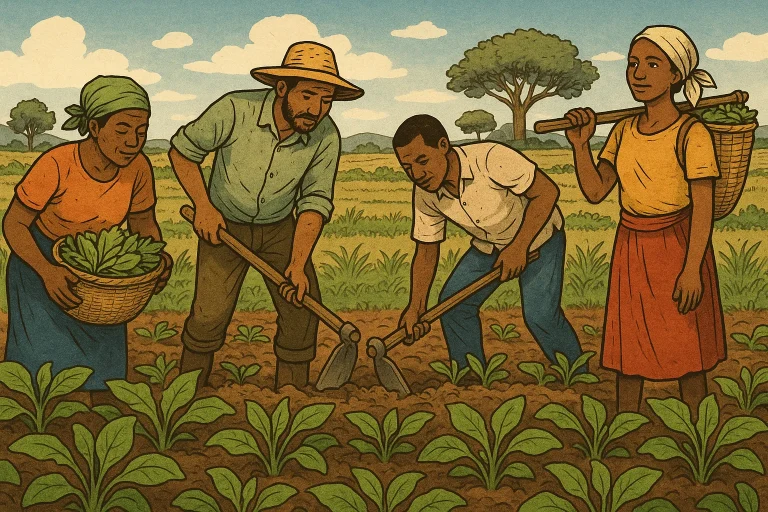LUSAKA, Zambia – Smallholder farmers who effectively communicate their needs and demonstrate the impact of their projects are more likely to attract funding and partnerships for climate-smart agriculture (CSA) initiatives.
This was emphasized by Bobby Shabangu, Communication and Knowledge Manager at the International Water Management Institute (IWMI), during a side interview with ASHENEWS at the launch of the second cohort of the AICCRA Zambia Agribusiness SME Accelerator.
Shabangu highlighted that visibility and the ability to clearly articulate project outcomes are critical for smallholders to gain access to financing. “Farmers must showcase their value and potential. Many funders are simply unaware of the untapped opportunities that exist within smallholder agriculture,” he said.
He further noted that the AICCRA Accelerator grants awarded in the second cohort require recipients to actively communicate the outcomes and impacts of their innovations to stakeholders and potential funders.
Launched earlier this year, AICCRA Zambia selected three agribusiness SMEs for its second accelerator cohort, focusing on areas such as water management, mechanization, integrated aquaculture, and climate-smart seed bundles.
The SMEs include:
Pebemu Enterprises, in collaboration with Lupiya Loans, will support climate resilience among smallholder farmers in Chibombo and Mumbwa districts of Central Province.
Toda Raba Limited is set to launch a greenhouse-based production of fish fingerlings, targeting an annual output of 2 to 3 million to meet growing local demand. The project will also include a modern butchery.
FeedNato Agro Limited, in partnership with Ubu-Ubuntu Finance and the Mulimi Farmers Scheme, will focus on scaling climate-smart soybean and groundnut seed varieties to enhance smallholder resilience to climate change.
These interventions aim to equip farmers with the tools, technologies, and knowledge required to adapt to changing climatic conditions, promote sustainable agriculture, and secure stable incomes.


